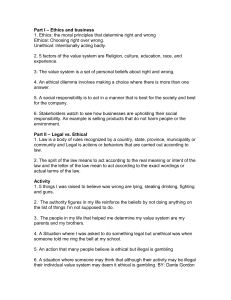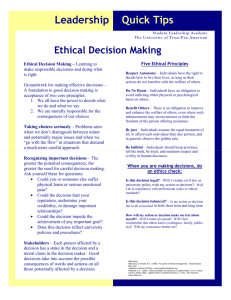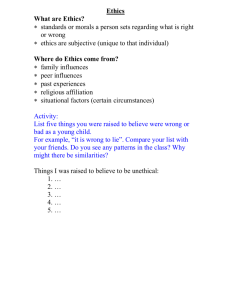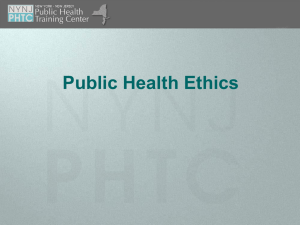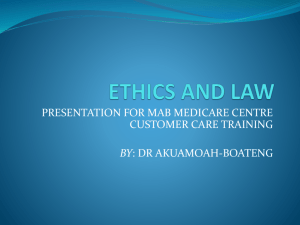Paw Prints - Ethics - Wentworth Institute of Technology
advertisement
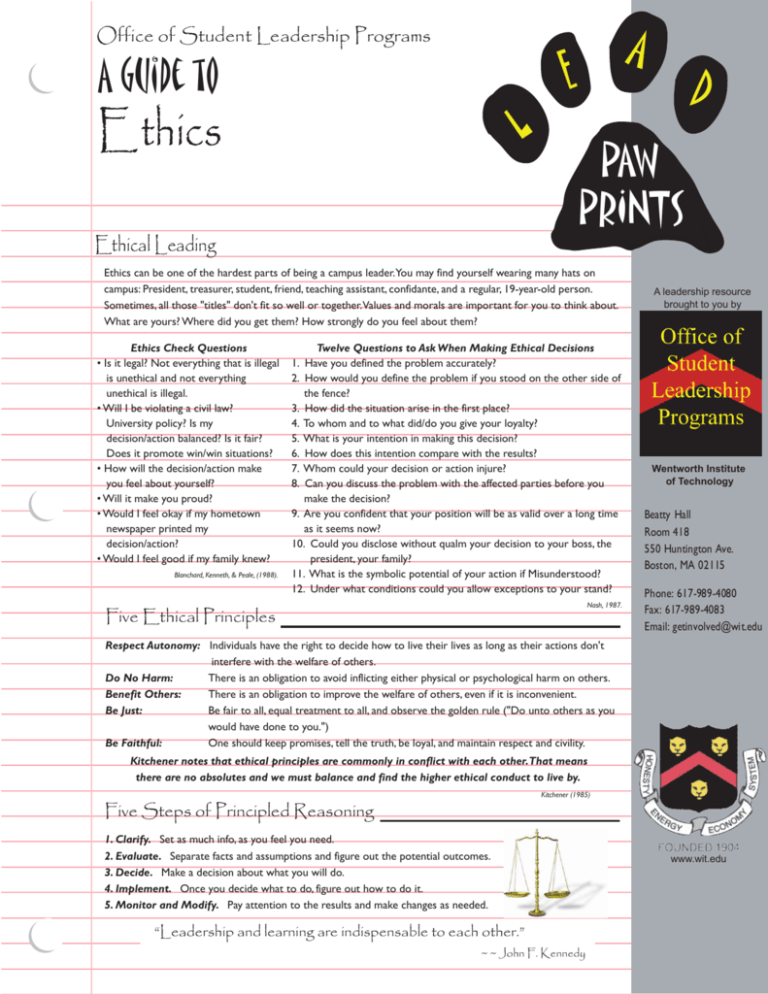
Office of Student Leadership Programs A E A guide to Ethics L Ethical Leading PAW PRINTS Ethics can be one of the hardest parts of being a campus leader.You may find yourself wearing many hats on campus: President, treasurer, student, friend, teaching assistant, confidante, and a regular, 19-year-old person. Sometimes, all those "titles" don't fit so well or together.Values and morals are important for you to think about. What are yours? Where did you get them? How strongly do you feel about them? Ethics Check Questions • Is it legal? Not everything that is illegal is unethical and not everything unethical is illegal. • Will I be violating a civil law? University policy? Is my decision/action balanced? Is it fair? Does it promote win/win situations? • How will the decision/action make you feel about yourself? • Will it make you proud? • Would I feel okay if my hometown newspaper printed my decision/action? • Would I feel good if my family knew? Blanchard, Kenneth, & Peale, (1988). D Twelve Questions to Ask When Making Ethical Decisions 1. Have you defined the problem accurately? 2. How would you define the problem if you stood on the other side of the fence? 3. How did the situation arise in the first place? 4. To whom and to what did/do you give your loyalty? 5. What is your intention in making this decision? 6. How does this intention compare with the results? 7. Whom could your decision or action injure? 8. Can you discuss the problem with the affected parties before you make the decision? 9. Are you confident that your position will be as valid over a long time as it seems now? 10. Could you disclose without qualm your decision to your boss, the president, your family? 11. What is the symbolic potential of your action if Misunderstood? 12. Under what conditions could you allow exceptions to your stand? Nash, 1987. Five Ethical Principles A leadership resource brought to you by Wentworth Institute of Technology Beatty Hall Room 418 550 Huntington Ave. Boston, MA 02115 Phone: 617 -989 -4080 Fax: 617 -989 -4083 Email: getinvolved@wit.edu Respect Autonomy: Individuals have the right to decide how to live their lives as long as their actions don't interfere with the welfare of others. Do No Harm: There is an obligation to avoid inflicting either physical or psychological harm on others. Benefit Others: There is an obligation to improve the welfare of others, even if it is inconvenient. Be Just: Be fair to all, equal treatment to all, and observe the golden rule ("Do unto others as you would have done to you.") Be Faithful: One should keep promises, tell the truth, be loyal, and maintain respect and civility. Kitchener notes that ethical principles are commonly in conflict with each other.That means there are no absolutes and we must balance and find the higher ethical conduct to live by. Kitchener (1985) Five Steps of Principled Reasoning 1. Clarify. Set as much info, as you feel you need. 2. Evaluate. Separate facts and assumptions and figure out the potential outcomes. 3. Decide. Make a decision about what you will do. 4. Implement. Once you decide what to do, figure out how to do it. 5. Monitor and Modify. Pay attention to the results and make changes as needed. “Leadership and learning are indispensable to each other.” ~ ~ John F. Kennedy www.wit.edu



